Speculation, Heresy and Gnosis in Contemporary Philosophy of Religion
Reframing Continental Philosophy of Religion
Series Editors: Steven Shakespeare, Senior Lecturer, Liverpool Hope University and Duane Williams, Senior Lecturer, Liverpool Hope University
Reframing Continental Philosophy of Religion aims to revitalise continental philosophy of religion. It challenges the standard Western Christian framework which has dominated philosophy of religion in the academy. It provides a platform for voices, theories and traditions which have been suppressed or marginalised by that framework, and offers genuinely new and constructive openings in the field. It is motivated by an imperative to liberate original thinking about religion from the legacy of Empire.
The series is published in partnership with the Association for Continental Philosophy of Religion.
Titles in the Series
Speculation, Heresy and Gnosis in Contemporary Philosophy of Religion: The Enigmatic Absolute , edited by Joshua Ramey and Matthew S. Haar Farris.
Simone Weil and Continental Philosophy , edited by Rebecca Rozelle-Stone (forthcoming).
Speculation, Heresy and Gnosis in Contemporary Philosophy of Religion
The Enigmatic Absolute
Edited by
Joshua Ramey and Matthew S. Haar Farris

London New York
Published by Rowman & Littlefield International, Ltd.
Unit A, Whitacre Mews, 26-34 Stannary Street, London SE11 4AB
www.rowmaninternational.com
Rowman & Littlefield International, Ltd. is an affiliate of Rowman & Littlefield
4501 Forbes Boulevard, Suite 200, Lanham, Maryland 20706, USA
With additional offices in Boulder, New York, Toronto (Canada), and Plymouth (UK)
www.rowman.com
Selection and editorial matter Joshua Ramey and Matthew S. Haar Farris 2016
Copyright in individual chapters is held by the respective chapter authors.
All rights reserved . No part of this book may be reproduced in any form or by any electronic or mechanical means, including information storage and retrieval systems, without written permission from the publisher, except by a reviewer who may quote passages in a review.
British Library Cataloguing in Publication Data
A catalogue record for this book is available from the British Library
ISBN: HB 978-1-78660-140-7
PB 978-1-78660-141-4
Library of Congress Cataloging-in-Publication Data
Names: Ramey, Joshua Alan, 1975- editor.
Title: Speculation, heresy, and gnosis in contemporary philosophy of religion : the enigmatic absolute / [edited by] Joshua Ramey and Matthew S. Haar Farris.
Description: Lanham, MD : Rowman and Littlefield Publishers, 2016. | Includes bibliographical references and index.
Identifiers: | ISBN 978-1-78660-140-7 (cloth : alk. paper) | ISBN 978-1-78660-141-4 (pbk. : alk. paper) | ISBN 978-1-78660-142-1 (electronic)
Subjects: ReligionPhilosophy.
Classification: LCCN 2016040046 LC classification BL51 .S62385 2016
 The paper used in this publication meets the minimum requirements of American National Standard for Information SciencesPermanence of Paper for Printed Library Materials, ANSI/NISO Z39.48-1992.
The paper used in this publication meets the minimum requirements of American National Standard for Information SciencesPermanence of Paper for Printed Library Materials, ANSI/NISO Z39.48-1992.
Printed in the United States of America
Contents
Joshua Ramey and Matthew S. Haar Farris
Daniel Whistler
Matt Lee
Mark Mason and Michael ORourke
Jessie Hock
Juan Salzano
Erin Yerby
Erik Davis
Matthew S. Haar Farris
Steven Shakespeare
Sam Webster
Clark Roth
Rocco Gangle
jason smick
n Khar Elliff-ce
Beatrice Marovich
Daniel Colucciello Barber
Anthony Paul Smith
Alex Dubilet
Eugene Thacker
Nicola Masciandaro
Joshua Ramey and Matthew S. Haar Farris
Meillassoux, however, thinks that the scepticism of the philosophies of finitude is misguided, and therefore in After Finitude disagrees that the only language left for the absolute must be a religious one. He argues, by contrast, that if it is a matter of contingency that mind and reality are related in a particular way by particular circumstances, then the ontological fact of radical contingency the fact that the situation of mind could be radically different from what it is is not an inhibition to rational thought or a limit on speculation, but is an insight that is itself the only true basis of rationality. In other words, only the thought that all things could be radically, absolutely different But because there is no inherent reason why such a world could not come into existence because of the absoluteness of contingency the existence of such a God can remain both thinkable and the object of affirmation.
Although only several of the chapters in this volume speak to Meillassouxs work directly, it is fair to say that his reconsideration of the question of the absolute his proposal that the absolute, against all philosophies of finitude, might in fact be thinkable forms a kind of horizon in which much of the work here can be usefully situated. Most of the chapters in what follow do not focus on traditional topics in the philosophy of religion, such as the rational status of the existence of God in the face of evil. Rather, the topics here concern phenomena often considered beyond the purview of rational deliberation: mystical experience, the logic of ritual practices, elusive visionary experiences, trance states, possession, mediumship, and other mantic states of consciousness. These experiences all violate the basic Kantian injunction that for experience to count as valid (non-illusory) it must be universally reproducible. That is to say, there is a kind of stain of radical contingency upon such experiences and events.
As Meillassoux is aware, such ungoverned experiences tend to play a strangely crucial role in post-Kantian philosophies of finitude. As Meillassoux notes in After Finitude , reference to such experiences beyond the pale of reason provides an important content for a general post-Kantian fideism, a faith that is beyond rational refutation or confirmation, and yet that reason must acknowledge as necessarily legitimate. It has thus been a staple of the phenomenological, hermeneutic, and deconstructive return of religion as a serious point of philosophical reference in the later twentieth and now twenty-first century that the topic of the absolute is a legitimate reference point for philosophical discussion, but only, and just so long as, it remains enigmatic . That is, just so long as the absolute can be whatever , it can become the subject of discussion and/or experimentation. Given the minds limitations, whatever is absolutely beyond reason can be acknowledged as such only as long as the affirmation itself utters its own finitude, its own contingency.
Meillassouxs own view, by contrast, is that the absolute is contingency, as such. The absolute is enigmatic not because of the contingent (embodied, Only mathematical language can make sense of the absolute status of contingency, since its marks are, at least in principle, inherently senseless, capable of indexing any order whatever. The glyphs of mathematics are completely arbitrary, and only a language of the completely arbitrary can in any sense refer to the absolutely contingent, since reference here must reduce to an index.
But perhaps Meillassouxs gambit on the mathematical is required only in view of a false alternative, a false dilemma imposed upon the content of religious experience (the beyond of reason) by post-Kantian philosophy. The dilemma is this: if experience is either coherent (its categories universally valid), or it is not, mutatis mutandis, then either our statements about it are meaningful, or they are not. This dilemma has functioned, as Meillassoux is well aware, to the great profit of phenomenology, hermeneutics, and deconstruction, since even as they pointed beyond their own descriptive purview, these movements made the difficulty or impossibility of exceeding philosophical description itself into a prime object of reflection, to the neglect of what Meillassoux calls the great outdoors: the thought of absolute contingency itself, the hyper-chaos beyond all relation or correlation to the mind. Such philosophies have also been notoriously reluctant to affirm the value of specific and particular religious experiences. Perhaps what is missing from both Meillassoux and the generation of post-Kantian philosophers he critiques is the fact that non-ordinary, mystical, or magical states of consciousness (the subject of much of the reflection in this volume) neither have clear names nor are unnameable, but are rather sites of the generation of new names , sites where realities are both fabricated and recognized. It is the contention of this volume that neither Meillassoux nor the philosophies of finitude he critiques sufficiently appreciate this point, and that what has been called speculation, heresy, and gnosis may yet contain some emissions however enigmatic from the great outdoors.
Next page
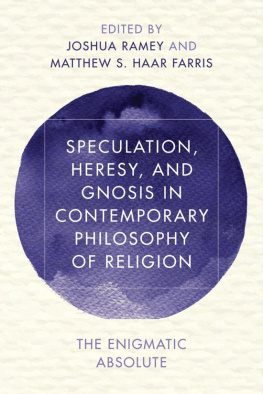

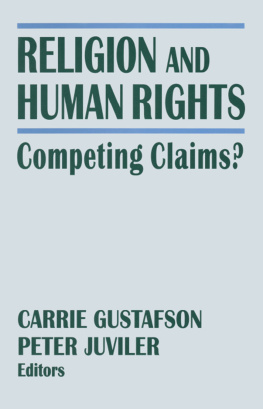
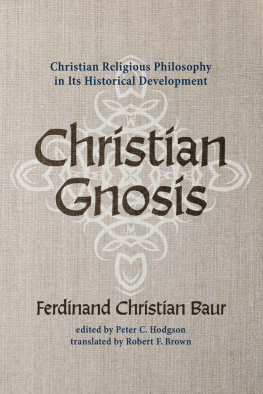
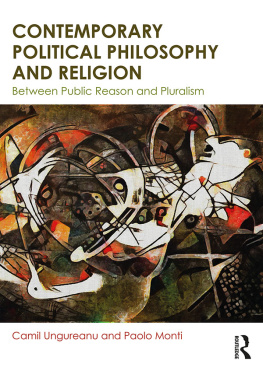
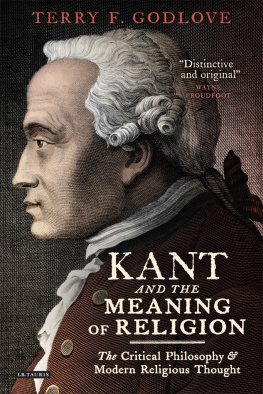
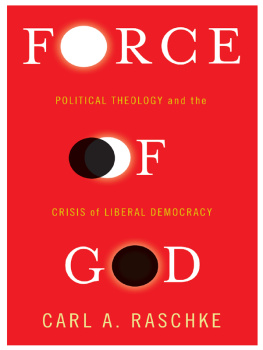
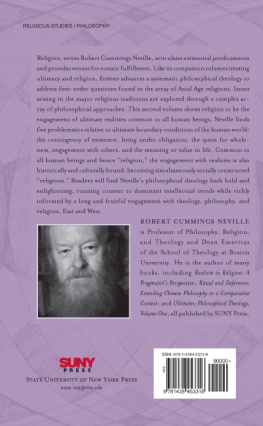
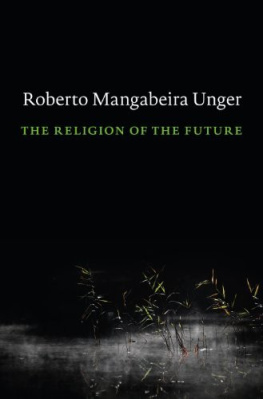

 The paper used in this publication meets the minimum requirements of American National Standard for Information SciencesPermanence of Paper for Printed Library Materials, ANSI/NISO Z39.48-1992.
The paper used in this publication meets the minimum requirements of American National Standard for Information SciencesPermanence of Paper for Printed Library Materials, ANSI/NISO Z39.48-1992.